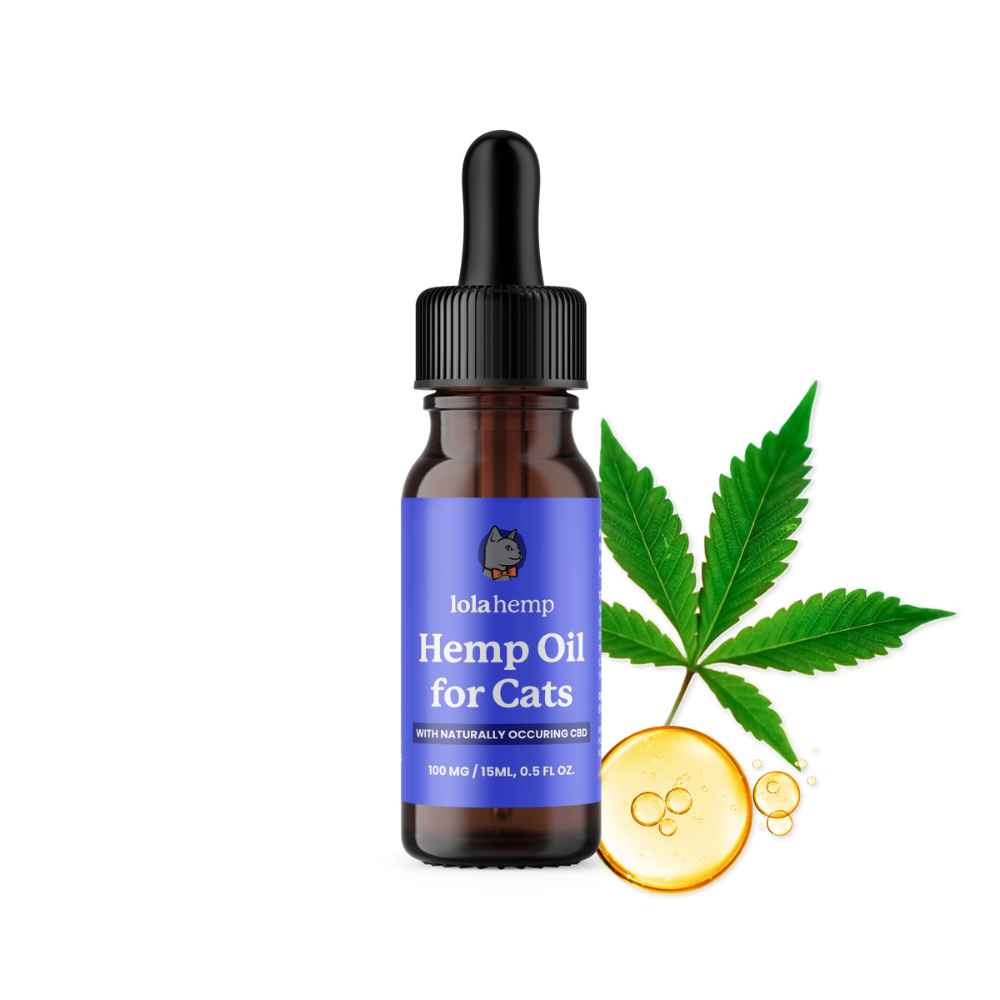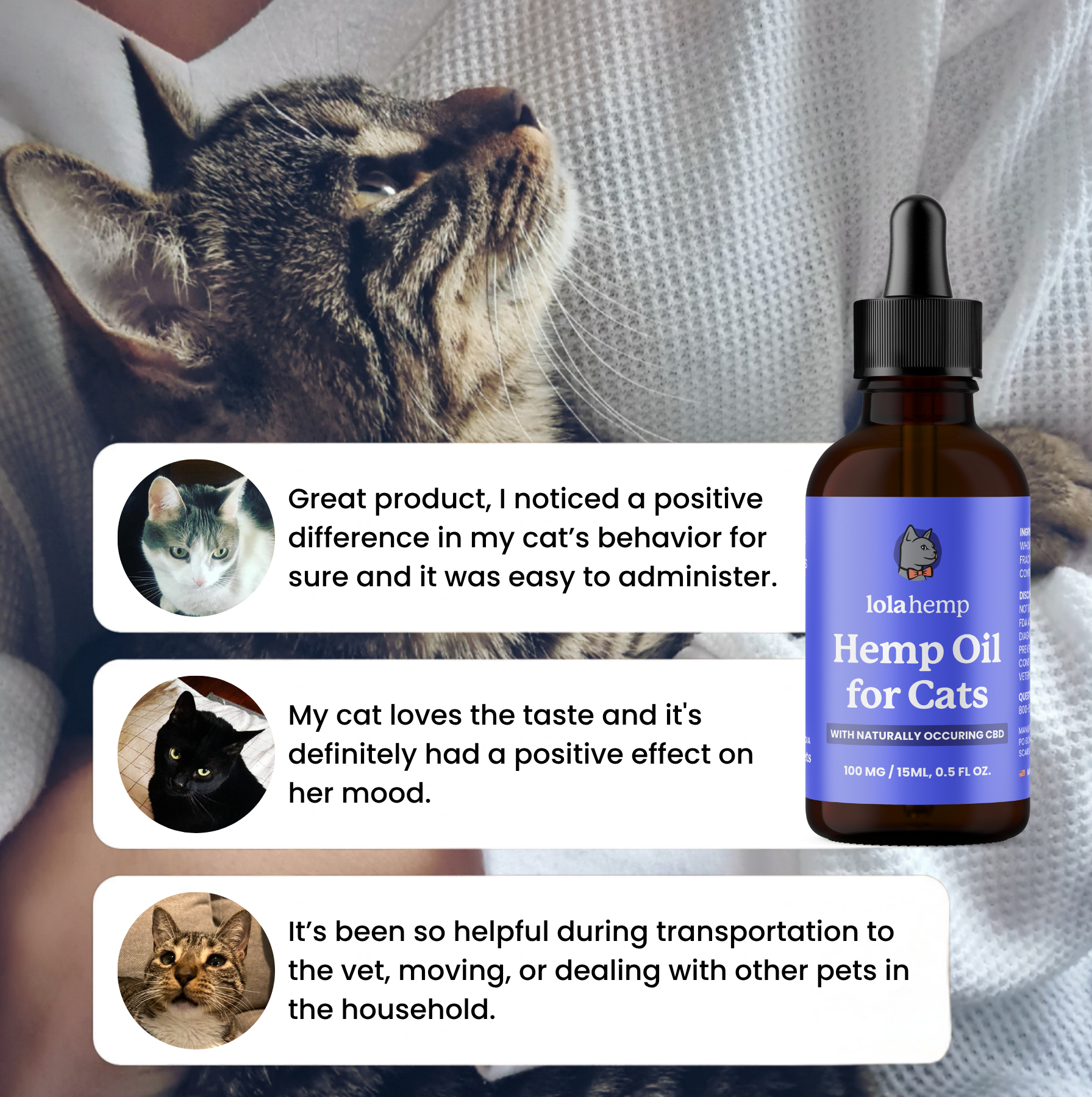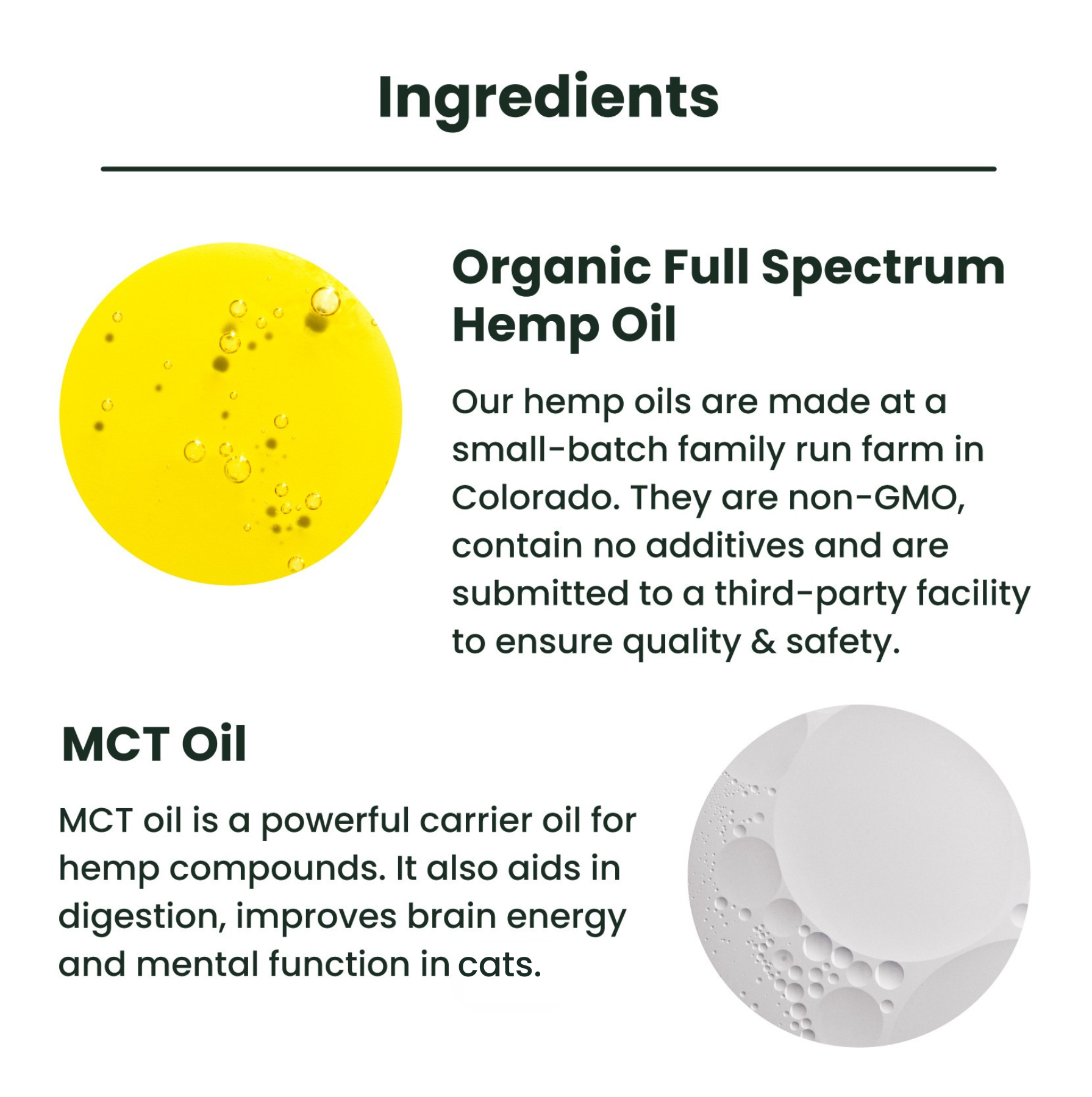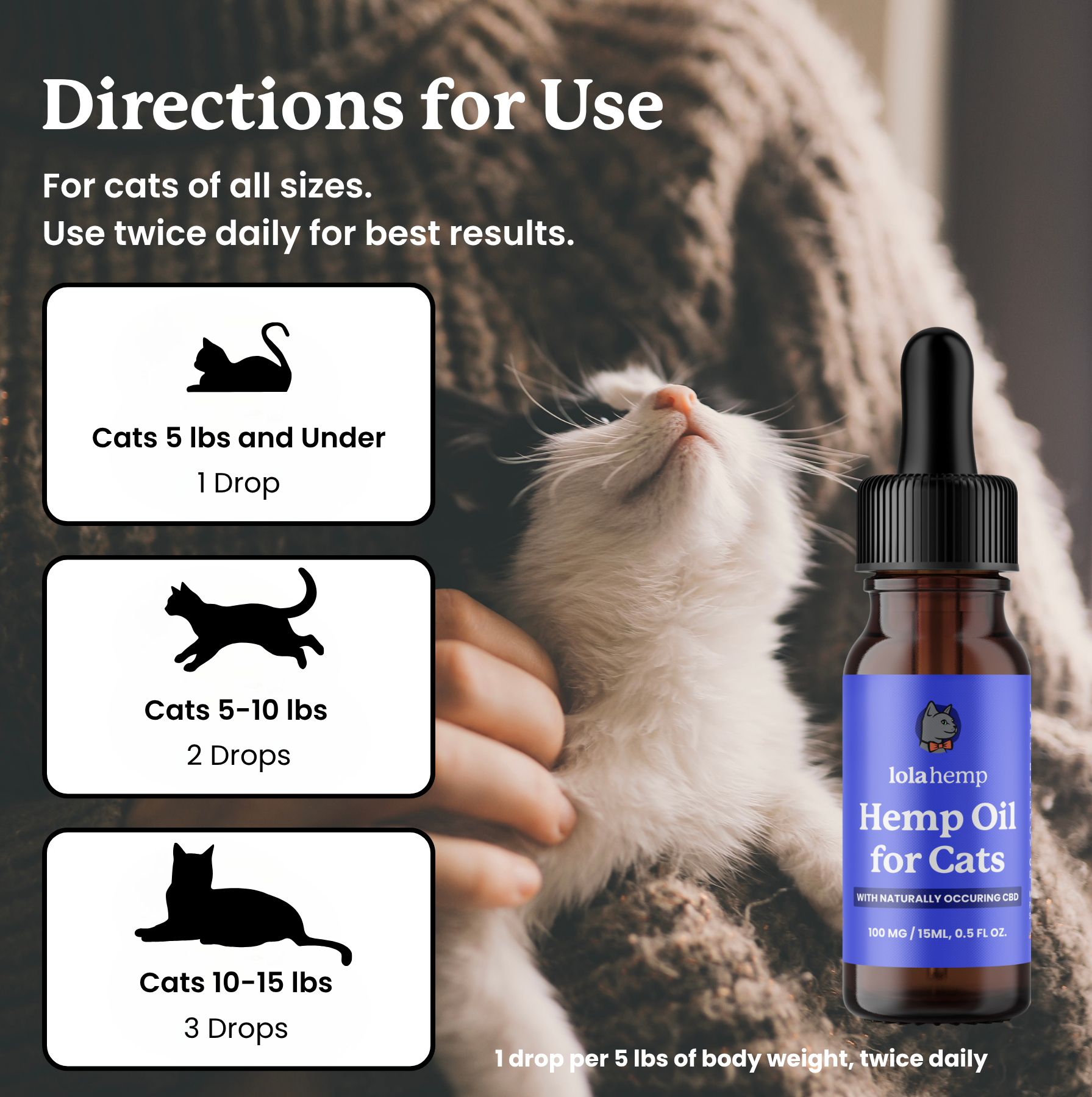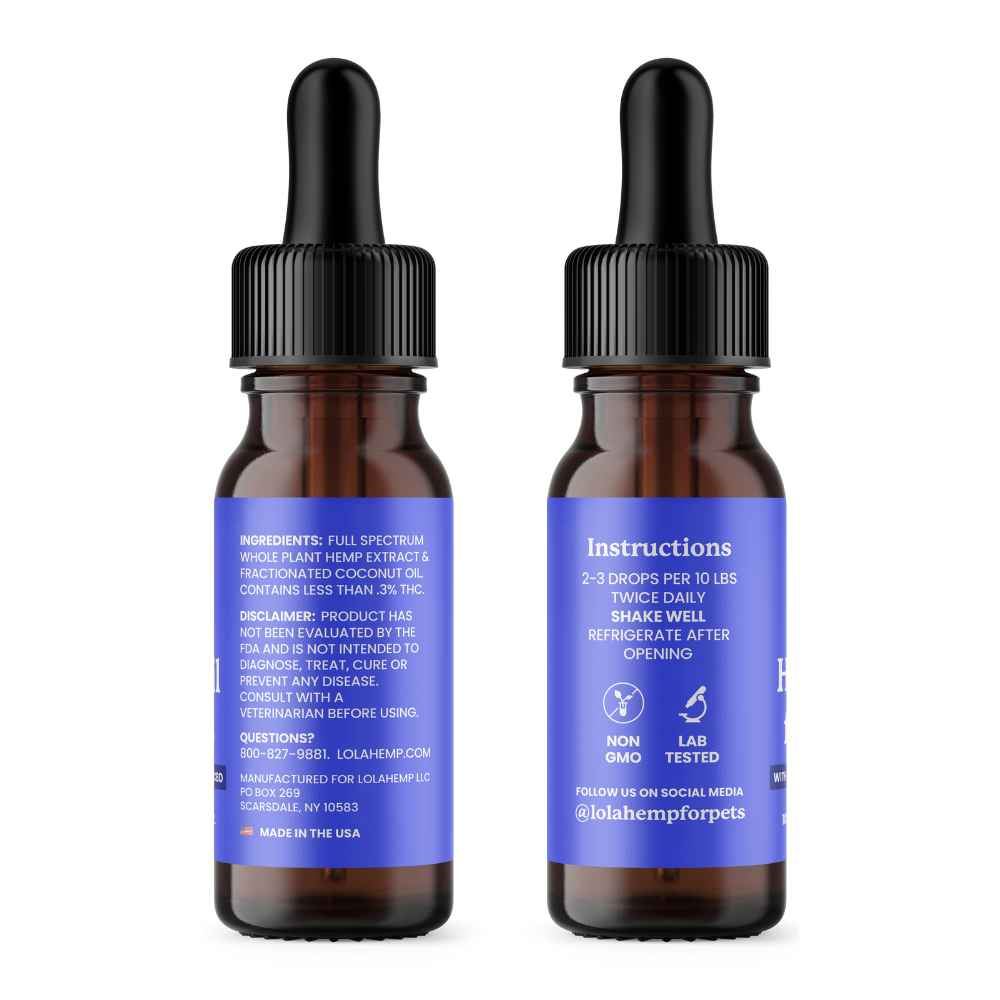CBD oil for cats is formulated to be safe and effective for our feline friends, and it does not get cats stoned because it has almost no THC.
On the other hand, marijuana is not safe for cats and it can even be toxic. If you're concerned that your cat has ingested marijuana in some form, this guide will help you out.
If your cat has ingested a significant amount of marijuana, rush to a veterinarian. In most cases, cats aren't permanently harmed from ingesting cannabis, but concentrated products like gummies, brownies, and medical grade cannabis could cause serious harm to your pet.

Is Marijuana toxic to cats?
If your cat has taken THC, go to the vet and be very detailed with the information you provide.
- Lianne McLeod, D.V.M.
Yes, marijuana may be toxic to cats, dogs, and horses. The high affinity of CB1 receptors in cats for THC may increase their sensitivity to its effects.
Cats can ingest marijuana products or inhale secondhand marijuana smoke. Edibles are infused with the oil used to extract THC from the cannabis plant and will therefore have a higher concentration of THC.
Edibles may also contain toxic substances like chocolate which are not safe for cats. Products that are safe for humans may not always be suitable for cats. All animals have different reactions to medicine, supplements, treats, or snacks like chocolate that are safe for humans.
Signs of Cannabis Exposure in Cats
If your cat has inhaled or ingested marijuana, the signs always point to neurological interference. Here are the signs of marijuana ingestion to look out for:
- Prolonged depression
- Vomiting
- Excitation
- Hypersalivation
- Incoordination
- Sleepiness
- Dilated pupils
- Low blood pressure
- Hypersensitivity to sound & touch
- Restlessness
- Aggression
- Seizure
- Coma
Signs of marijuana exposure can appear within minutes or a few hours and last for half an hour to several days. Do not just assume your cat needs to “sleep it off”. If you notice any of these symptoms, rush to the Vet.

Treatment of Marijuana Intoxication
Treatment options are mostly supportive care practices. If your pet takes cannabis within 30 minutes of going to the hospital, your Vet will induce vomiting to remove the toxic substance.
Vets can also activate charcoal which absorbs the ingested toxin. Activated charcoal powder is mixed with water and it will absorb toxins from the intestinal tract to prevent the spread of toxins.
Conclusion
Cats get high when they take marijuana. If you notice your cat appearing dizzy, disoriented, sleepy, hyperactive, depressed, drooling excessively, having dilated pupils, restlessness, and aggressive, they have probably taken marijuana.
Marijuana is toxic to cats and has serious health consequences so seek emergency care if you suspect your feline friend has ingested it. If you're curious about the potential feline health benefits of hemp products, consider a CBD oil for cats made to be healthy and effective specifically for them.
Frequently Asked Questions About THC for Cats
Is THC safe for cats?
No. THC is toxic to cats and can cause severe neurological symptoms, low blood pressure, and potentially life-threatening reactions.
What should I do if my cat eats marijuana?
Seek emergency veterinary care immediately. Provide your vet with as much detail as possible about the product and the amount ingested.
Can secondhand marijuana smoke harm cats?
Yes. Inhaling marijuana smoke can expose cats to THC and cause intoxication and respiratory irritation.
How long do THC toxicity symptoms last in cats?
Symptoms may last from 30 minutes to several days depending on dose, concentration, and the cat’s sensitivity.
Is CBD safe for cats if THC is not?
Yes. Hemp-derived CBD formulated for cats contains almost no THC and does not cause intoxication when used as directed.

